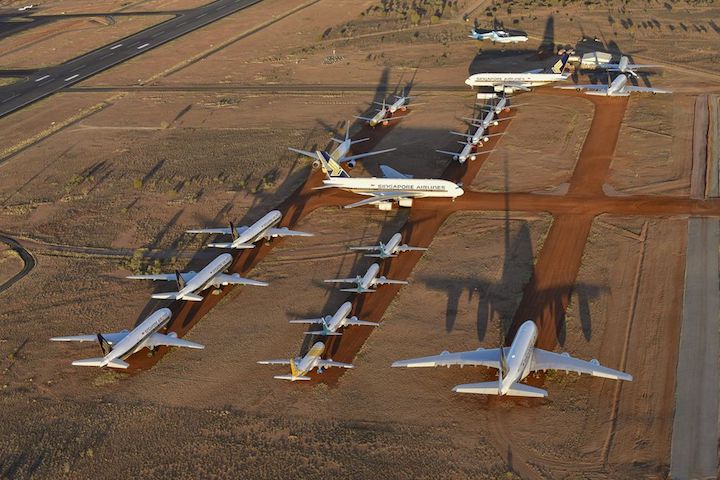The U.S. and European Union’s top trade officials have stepped up work to settle a long-running dispute over aircraft subsidies before President Donald Trump leaves office in January, people familiar with the matter said.
U.S. Trade Representative Robert Lighthizer and his EU counterpart, Valdis Dombrovskis, are in regular contact on the case involving Boeing Co. and Airbus SE, according to the people, who spoke on condition of anonymity because the talks are private. Lighthizer separately discussed the negotiations with French and German officials, one of the people said.

Both economies have imposed tariffs on each other’s products—punitive measures authorized by the World Trade Organization—that remain in place unless a settlement is reached.
A spokesman for the USTR didn’t immediately respond to an emailed request for comment. In an emailed statement, the European Commission confirmed it’s in contact with U.S. officials, repeating that the EU is ready to withdraw all of its tariffs tied to the dispute if the U.S. does, too.
For the U.S., relief from the EU’s tariffs would come at a good time: Ireland’s Ryanair Holdings Plc is near an agreement to order more Boeing 737 Max aircraft, giving the U.S. planemaker a lift as the jet comes off an unprecedented 20-month grounding.
The latest push for talks between Washington and Brussels is aimed at finally resolving a 16-year dispute at the Geneva-based WTO, which ruled that both the U.S. and the EU excessively subsidized their domestic aerospace industries in violation of their international trade commitments.
The governments of Germany, France, Spain and the U.K. provided Airbus with subsidies through launch-aid loans for aircraft development, equity infusions, debt forgiveness and various other financial contributions.
In the U.S., Boeing benefited from subsidies through a since-withdrawn Washington state business and occupation tax break.
WTO Awards
The legal case reached a conclusion in October when the WTO authorized the EU to retaliate with tariffs on $4 billion worth of U.S. imports annually. That ruling came nearly a year after the WTO authorized the U.S. in a parallel dispute to impose tariffs on $7.5 billion in goods from European nations including France, Germany, Spain and the U.K.
Both sides say they want to settle the matter but they’ve been split over how to resolve the treatment of past subsidies.
Lighthizer has demanded both a European pledge to end aid to Airbus and a repayment of “some element of the subsidy.”
That’s a tough ask of Airbus, which is struggling during the Covid-19 pandemic with a sharp reduction in orders for airplanes. But European member states—particularly Germany—are keen to mend transatlantic ties and eliminate the drag that Trump’s tariffs have caused to European exporters.
EU member states understand that if they are unable to reach a deal with Lighthizer this year, discussions with the Biden administration would likely continue well into 2021 as the new president focuses on domestic economic matters.








